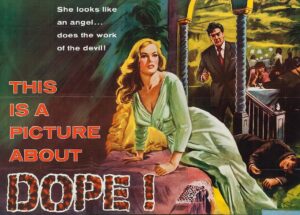On May 29th Jacobin.com published the ironically titled article To Understand Elon Musk, You Have to Understand This ’60s Sci-Fi Novel by Jordan S. Carroll in which the good professor misread or misrepresented the novel The Moon is a Harsh Mistress (1966) by Robert A. Heinlein as a guide to understanding Elon Musk.
I come here not to defend Heinlein’s novel, its philosophies, or its meaning but rather in protest the professor’s inaccuracies and omissions that create a strawman for his argument.
Here from the article is Carroll’s description of the novel core conflict.
It’s about a lunar colony that frees itself, via advanced and cleverly applied technology, from the resource-sucking parasitism of Earth and its welfare dependents.
The Moon Is a Harsh Mistress depicts a moon colony forced by the centralized Lunar Authority to ship food to Earth where it goes to feed starving people in places like India. The lunar citizens, or Loonies, revolt against the state monopoly and establish a society characterized by free markets and minimal government.
Absent from this recounting and the entire article is the quite essential element that in the novel the moon is a penal colony. It is a prison removed from courts, laws, and governance. Exile to the moon is a one-way life sentence and even the guards and the despotic warden are, due to physiological changes wrought by prolonged life in 1/6 gravity, unable to return to Earth. People born on the moon are not technically prisoners but have no rights save whatever is granted by the warden’s generosity and can never live upon the Earth. It is a despotic, authoritarian dictatorship without any form of oversight. By omitting this element of the narrative Carroll is free to portray the people, for they are not citizens anywhere, of the moon as greedy libertarians indifferent to their fellow man.
The novel takes solutionism to the extreme when Mannie enlists the help of a sentient supercomputer named Mike to lead the overthrow of Earth’s colonial government on Luna
Here Professor Carroll has reversed the cause and effect of the novel’s progression. Mannie is not a revolutionary who enlisted the secret sentient computer into the revolution but rather it was the curious computer, Mike, that sent the apolitical Mannie into the revolutionary meeting because he had no way to listen in on the meeting. It is only after Mannie is won over by the revolutionaries and reveals to the pair that recruited him that the lunar colony’s central computer is aware that they decide to utilize this unique resource. Mike leads nothing, he is a tool and in many ways a child treating the revolt as a game.
When it comes to the revolution itself Carroll is no more careful in his representation that he was in depicting the conditions on the moon.
Mannie the computer technician, designs their clandestine cell system like a “computer diagram” or “neural network,” mapping out how information will flow between revolutionists. They determine the best way of organizing a cadre not through democratic deliberation or practical experience but through cybernetic principles.
Either Professor Carrol is ignorant or has chosen to ignore the history of Clandestine Cell Structure that has been used in resistance and revolutionary movements decades before the novel’s publications. In his haste to prove that everything from the novel that has apparently influenced Musk is tied to modern tech bro culture is has ignored or misrepresented actual history.
And here is another distortion of the novel’s events.
Even when it comes time to establish a constitution for the Luna Free State, the conspirators use clever procedural tricks to do an end run around everyone in the congress who is not a member of their clique. Smart individuals always win out over mass democracy in Heinlein’s fiction — and that’s a good thing.
First off, they did not ‘do an end run around’ the congress they established the congress with their command cell member occupying all the key positions. They attempted to create the impression of a representative government while retaining full control and that’s what happened — for a while.
The Lunar Congress, unaware that they were supposed to be rubber stamps and nothing more, formed a new government and with a stroke undid all of the revolutionaries careful plotting. Because this was not a revolution that shot the most capable revolutionaries after the victory, as so many in history has done, an actual representative government replaced the despotic tyranny of the penal colony. Not quite what Professor Carroll told people in his article.
And that brings me to the final and most critical blindness in the article and in people who hail the novel as a tale of a successful libertarian revolution.
In the novel the revolution failed.
Yes, the penal colony was freed, and a representative government replaced a dictatorship, but that government very quickly transitioned away from anything approaching pure libertarianism into a more conventional form. The novel opens with the Mannie bemoaning the coming of new taxes, and then once the flashback to the revolution is over, it ends with him contemplating immigration to some less populated area. The Libertarians lost the government. The moon did not become an outpost of pure unfettered capitalism and unregulated markets. It became Earth. If Musk thinks the novel points to an unregulated future, he has misread it as badly as Carroll.


